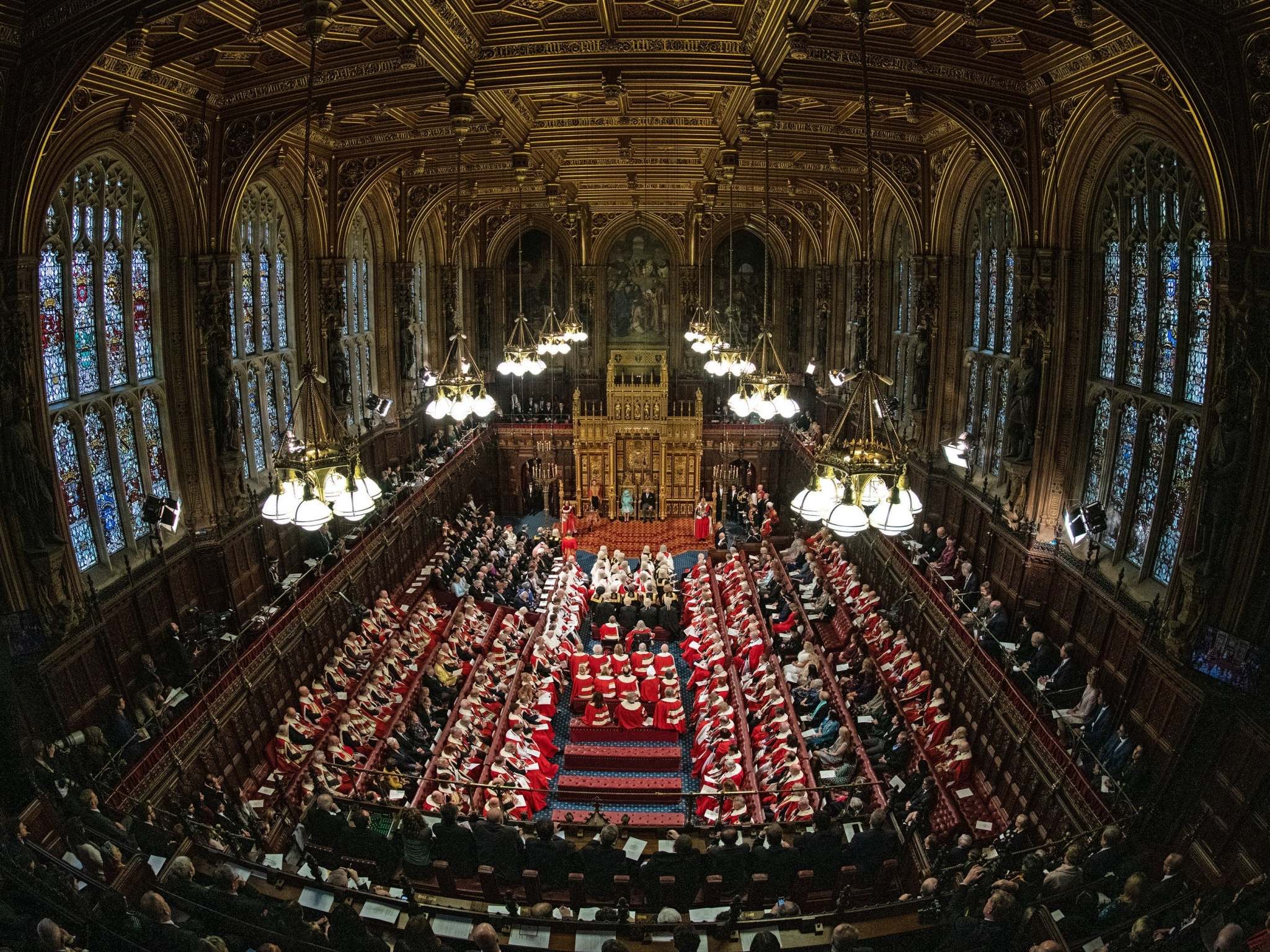How Boris Johnson could face one more defeat over Brexit
Many peers in the House of Lords are pushing to bring back the Dubs amendment on child refugees in the EU Withdrawal Bill, writes Sean O'Grady


It is not “a good look”, as they say, for the government of a wealthy civilised nation to be perceived to be unsympathetic to child refugees, the most vulnerable of the vulnerable. And yet this is the allegation being levelled angst the Johnson administration by its critics, as it refuses to enshrine in the EU withdrawal bill a proposal that would give unaccompanied child refugees the right to be reunited with their families legally resident in the UK. Presently languishing in squalid and dangerous camps in northern France and Greece, they are homeless; all agree on the principle of family reunification but differ sharply in the best way to have it.
Lord (Alf) Dubs was himself a Jewish child refugee who arrived in Britain from Prague on the famous Kindertransport in 1938, effectively saving him from the Nazi death camps. Having made a life here and a career in Labour politics he has recently campaigned successfully to have the child refugees question resolved in legislation. His amendments to two previous Brexit bills, which would allow the refugees to come to the UK, were agreed by the May and the Johnson administrations. However, since the general election, the government has deleted the “Dubs amendment”. All of the Tories 328 MPs voting against it, and the government’s thumping majority in the Commons means that few if any amendments to the Withdrawal Agreement Bill will be accepted.
However, the government enjoys no overall majority in the House of Lords, and the Dubs amendment is expected to be inserted back into the legislation by Lord Dubs’ colleagues, on a cross-party basis.
Constitutionally, the Lords are on sound ground. The 1949 Salisbury Convention is that measures clearly in a wining party’s manifesto cannot be vetoed by the Lords. While of course Brexit was an obvious Tory pledge – the specifics on child refuges were not covered in the text. All it had was a commitment to “overhaul the current immigration system, and make it fairer and compassionate” and we will continue to grant asylum and support to refugees fleeing persecution, with the ultimate aim of helping them to return home if it is safe to do so”.
As ended by the Lords, the legislation will then return to the Commons. The government has indicated they will try to defeat the clause again.
The minister responsible, Robin Walker, indicates that: “This government is fully committed both to the principle of family reunion and to supporting the most vulnerable children. Our policy has not changed.
“We will also continue to reunite children with their families under the Dublin Regulation during the implementation period.”
The government argue the right is best enshrined elsewhere, and there is the suggestion that the issue is one that might come up in future EU negotiations – what Lord Dubs scornfully calls “a bargaining chip”.
The usual solution to such a Lords Commons impasse on an emotionally charged issue, provided there is a will to agree, is to seek a compromise. So far only a government commitment to make a statement on the issue has been made – not enough to satisfy Lord Dubs and his supporters. He says: “There's nothing in it at all for them. There's nothing to gain from appearing to be against humanitarian principles. After all the most basic thing in life is that children should join their relatives, their families.”
The Lords vote will happen this week, and then the bill will return to the Commons. It will need to pass all the stages, including royal assent, to become law in time for the planned legal Brexit date of 31 January.
Join our commenting forum
Join thought-provoking conversations, follow other Independent readers and see their replies
Comments